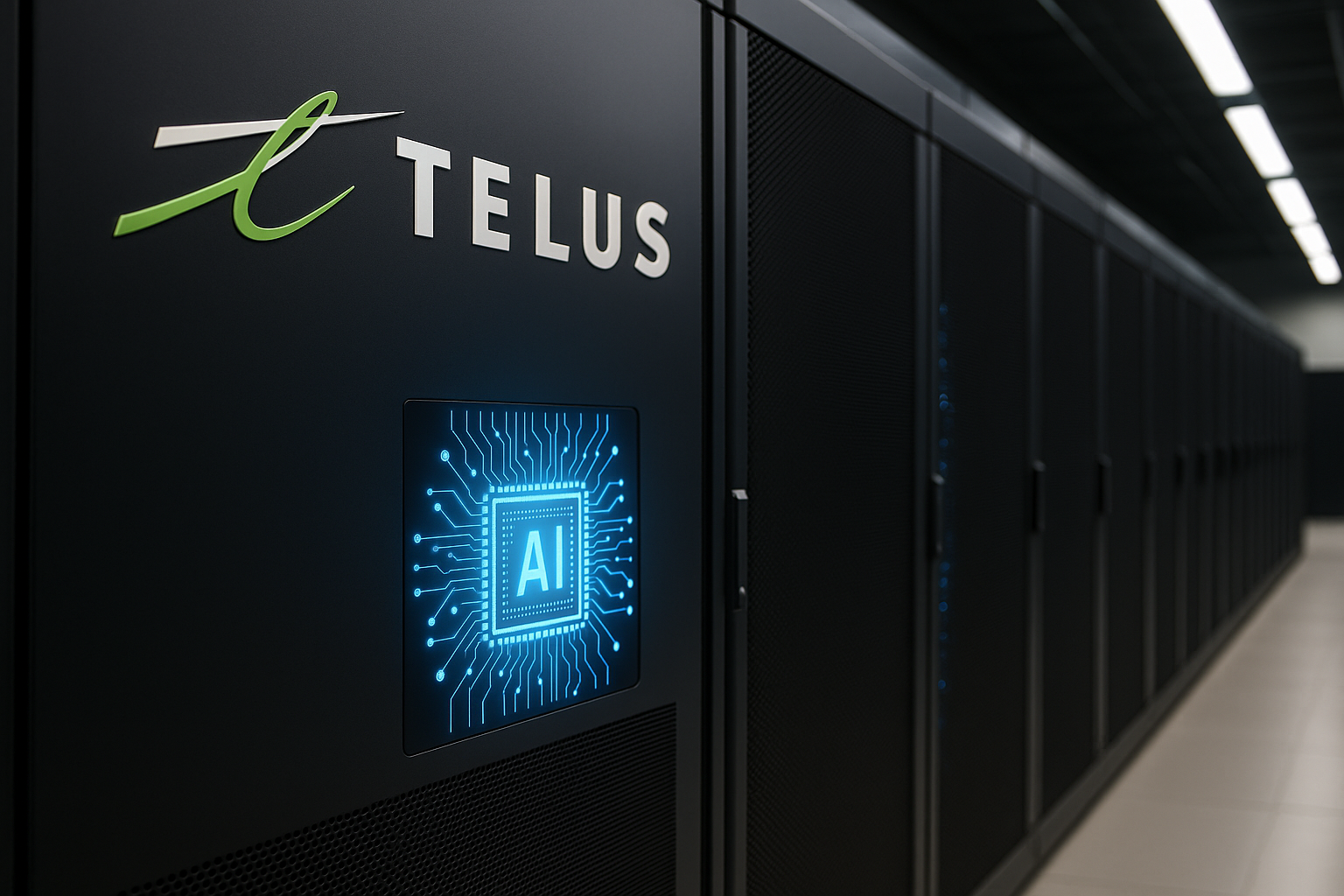Canada is accelerating its position in the global technology landscape with a major leap in high-performance computing. TELUS’s newly unveiled Sovereign AI Factory has been ranked the nation’s fastest and most powerful supercomputer—an achievement reported by The Malaysian Reserve that marks a pivotal moment for the country’s AI and tech infrastructure ambitions. As global demand for compute power surges, this development signals a potential turning point for Canada’s role in the AI economy and for investors watching the evolving digital infrastructure space.
TELUS’s investment reflects a global shift, where nations and private corporations are racing to build sovereign AI capabilities—critical infrastructure that supports national competitiveness, cybersecurity, and industrial innovation. For Canada, the emergence of a domestically controlled, high-performance compute platform directly addresses a longstanding weakness identified in government reports and industry analyses.
A Major Step Forward for Canada’s AI Capabilities
The TELUS Sovereign AI Factory is designed to provide secure, high-throughput computing for advanced AI workloads, cloud services, enterprise applications, and research institutions. According to recent industry commentary referenced by Bloomberg and Deloitte’s technology forecasts, the most competitive economies are those capable of hosting the full AI lifecycle domestically: compute, data, training, and deployment.
Canada has historically lagged in this area. While it stands strong in foundational AI research—home to leading academic centers and pioneering scientists—its infrastructure footprint has not kept pace with requirements for next-generation AI models. TELUS’s new supercomputer begins to close that gap.
Early technical assessments report that the system is capable of handling massive AI training tasks, multi-industry digital twins, advanced analytics, and high-volume secure workloads. For industries such as healthcare, finance, telecom, energy, and transportation, this represents a new domestic option for high-performance compute without relying on foreign hyperscalers.
Why This Matters for Investors
At a time when AI demand is reshaping capital allocation across global markets, the launch of Canada’s fastest supercomputer carries major significance:
- AI infrastructure is becoming the new economic backbone. As McKinsey notes in its AI Productivity Index, compute power is a leading determinant of national competitiveness.
- Investors are shifting from pure AI software plays toward infrastructure-focused companies—those that provide GPUs, fiber networks, data centers, cooling technology, and sovereign cloud environments.
- TELUS and similar telecom/tech providers stand to benefit from a rising wave of AI-related capital expenditures from enterprises and government agencies.
- Domestic solutions reduce dependency on U.S.-based hyperscalers, offering more secure, regulation-friendly environments for Canadian enterprises.
In capital markets, AI infrastructure themes have outperformed traditional tech segments, driven by unprecedented demand for compute capacity and massive projected shortages of GPUs and high-performance data centers.
Strategic National Implications
TELUS’s supercomputer also touches on broader national strategies:
1. Strengthening Canada’s Digital Sovereignty
Countries worldwide are building “sovereign AI stacks” to safeguard sensitive data and reduce reliance on foreign infrastructure. Canada is now among those bolstering national resilience.
2. Enhancing Competitiveness in AI Commercialization
The CCA and OECD have previously identified compute access as a core barrier to Canadian innovation. With TELUS’s platform, startups, universities, and enterprises gain improved access to high-performance resources.
3. Supporting Economic Diversification
This infrastructure is vital for Canada’s fast-growing sectors: quantum computing, biotech, clean energy modeling, cybersecurity, and autonomous systems.
4. Threat Mitigation for Canadian Firms
With cybersecurity risks rising, domestic AI infrastructure may offer stronger protection against foreign data exposure—an area emphasized by government technology briefings.
Future Trends to Watch
Investors should track several indicators that may influence the trajectory of Canada’s AI infrastructure landscape:
- Enterprise adoption rates of sovereign AI services, especially among healthcare networks, banks, and public institutions.
- TELUS’s capital investment patterns, particularly any expansion of data center capacity or partnerships with GPU manufacturers.
- Potential government partnerships, as national AI strategies increasingly incorporate sovereign compute capabilities.
- The pace of AI-driven telecom modernization, as next-generation networks require massive compute and automation.
- Competitive pressures from global hyperscalers, which may respond with more localized services in Canada.
Momentum is building across North America for AI infrastructure expansion. Canada’s entrance into the sovereign AI arena positions TELUS—and potentially other domestic telecom/tech companies—as central players in the continent’s computing future.
Key Investment Insight
The rise of sovereign AI platforms marks a powerful shift for Canadian technology investors. Companies developing or supporting high-performance computing infrastructure—including data centers, telecom operators, GPU suppliers, and cybersecurity firms—may be poised for long-term growth. TELUS’s achievement highlights a broader trend: AI infrastructure is becoming one of the most investable themes of the decade, and Canada is finally stepping into the race.
Stay informed with MoneyNews.Today for daily insights and market-shaping developments across technology, AI infrastructure, and emerging digital economies.





